
Grocery shopping can be frustrating, especially if you love fresh produce and other perishables. Certain foods — for instance, bananas and bread — have a brief shelf life. So, you’re forced to buy in smaller portions.
But with food that’s more perishable, you can use simple tricks to extend the useful life.
Instead of wasting time, money and gas on shopping, here are some ways to make your groceries last longer so you can shop less.
1. Toss spoiled produce
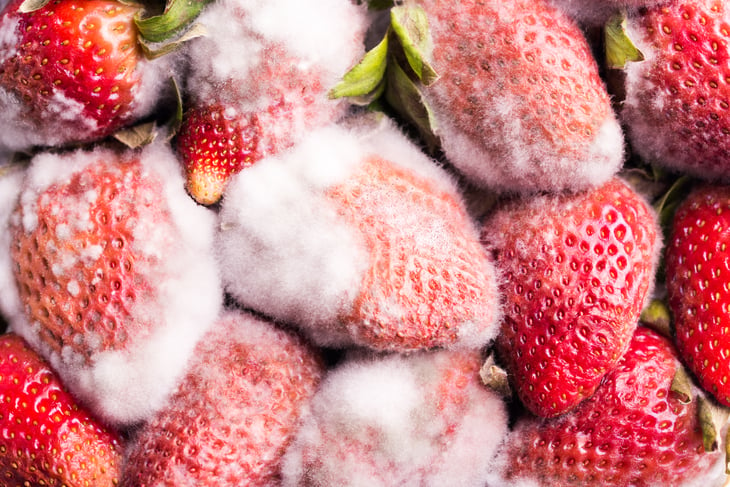
Before storing, examine the contents of each bag and promptly remove (then use, if you can) food that’s bruised, overripe or on the brink of spoiling. Fruits and vegetables in this condition release ethylene gas that can spoil the remaining good produce.
2. Store lemons and limes in the fridge
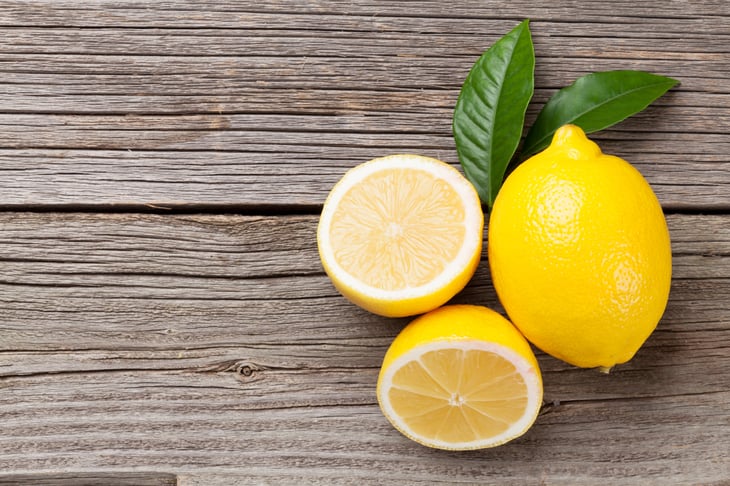
Are you tempted to store lemons, limes and other bright-colored citrus fruits on the counter? They certainly do look great in a bowl.
Don’t do it. Instead, seal them in a plastic bag and store it in the refrigerator to keep them fresh longer. The extra humidity helps retain moisture. Alternatively, store citrus fruit in a bowl of water in the fridge, says Food52.
Properly stored refrigerated citrus can last up to four weeks, according to StopFoodWaste.org.
3. Store cheese with sugar cubes

Tired of cheese quickly drying out, molding or hardening? Here’s a trick: Box your cheese in a plastic container with a couple of sugar cubes.
That helps maintain freshness, a woman who has owned a cheese shop for over 30 years told The Guardian.
4. Puncture plastic produce bags
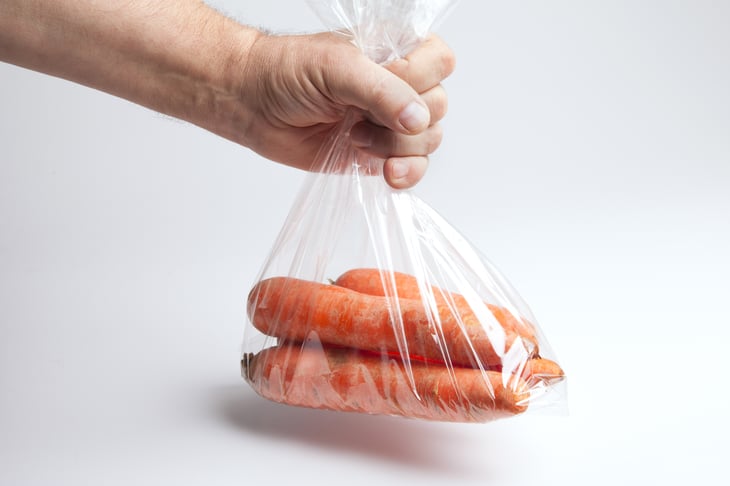
Poke a few holes in those produce bags you get at the grocery store. Otherwise, they’ll trap the moisture that causes most produce to break down faster. (Sometimes you want a tight seal on a plastic storage bag, but not in this case.)
Mesh bags can be a good alternative, Good Housekeeping says.
5. Use the freezer
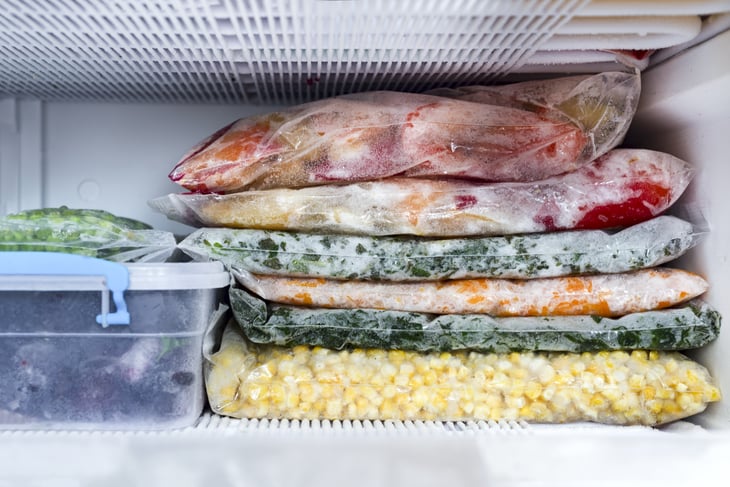
Frozen banana pops are my favorite for two reasons: They preserve unused bananas, and they taste great.
Freezing works well for most fruits and vegetables, as long as they are consumed within eight to 12 months.
Just remember to label them so you don’t find yourself eating something that’s been hiding in the back of the freezer for a decade.
6. Shrink-wrap the crown of bananas
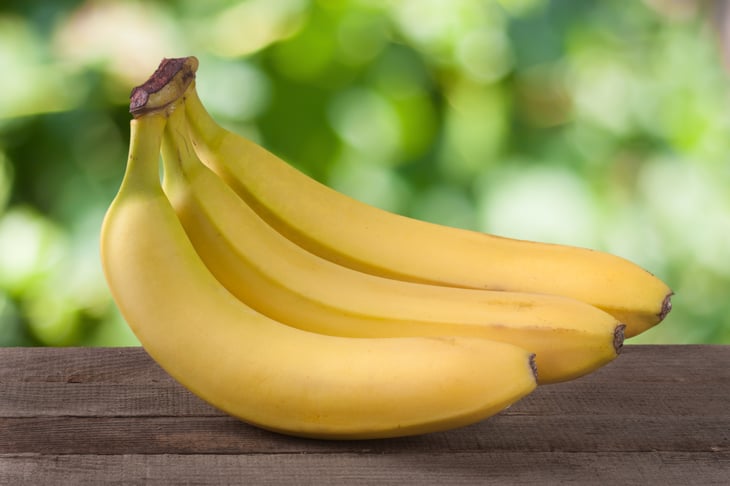
It only takes a few seconds to secure some plastic wrap around the crown of a bunch of bananas. This curbs the release of ethylene gas.
7. Bundle up herbs
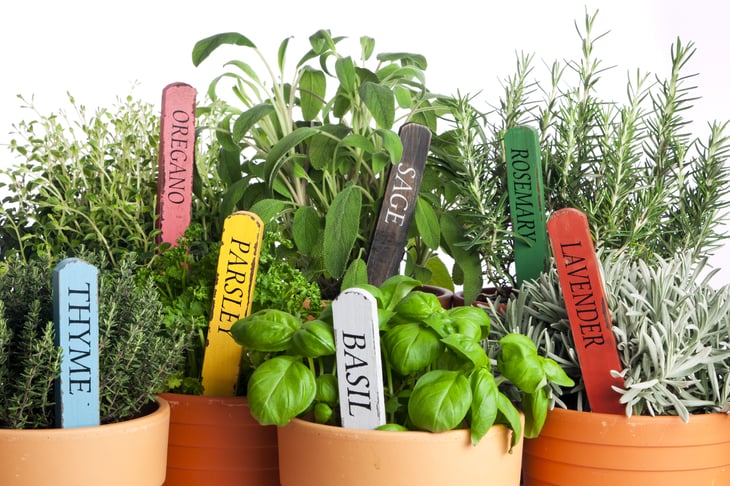
Herbs can be displayed like a beautiful bouquet of flowers in a vase of water. Doing this keeps the herbs alive a lot longer without taking up refrigerator space. Just be sure to trim the end of the stems first.
8. Store counter items away from windows
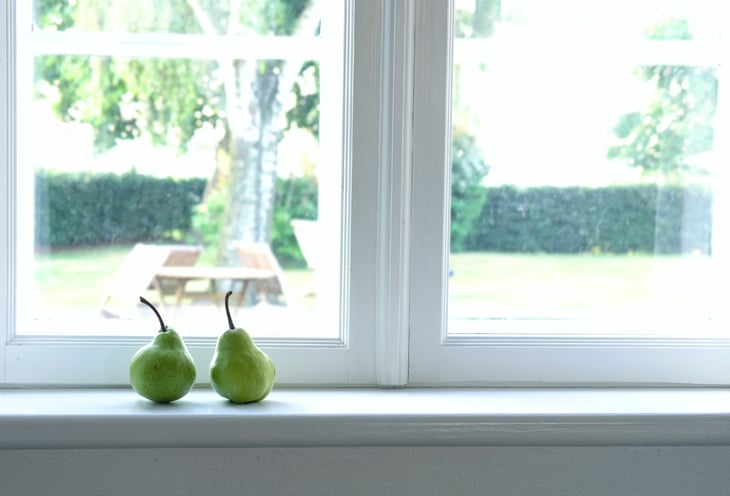
It may be convenient to store melons or pears on an area of the kitchen counter closest to the window, and they do look nice in the light. But don’t do it unless you want them to ripen faster. The added heat from direct sunlight speeds up the ripening process.
9. Keep onions in pantyhose
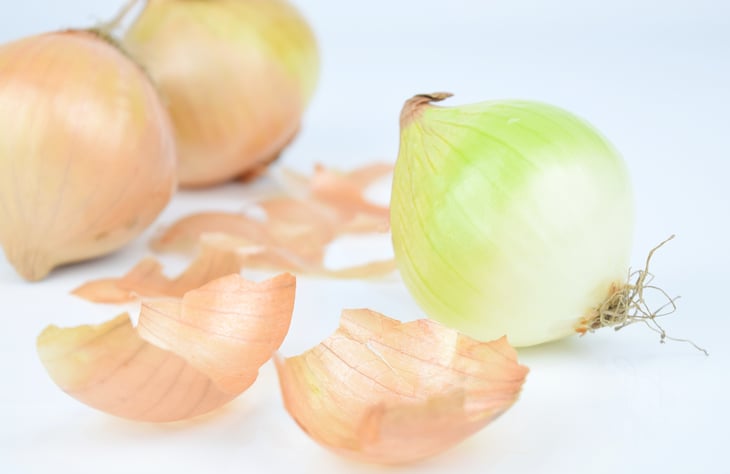
Drop an onion in each foot, tie a knot above it and continue this pattern until you fill the legs. Hang the pantyhose in a cool, dry, dark place, such as a pantry or closet. When you need an onion, just snip one free.
According to Lifehacker:
“Apparently keeping the onions dry, able to breathe, separated, and suspended in the air maximizes their shelf life.”
10. Don’t immediately slice and dice
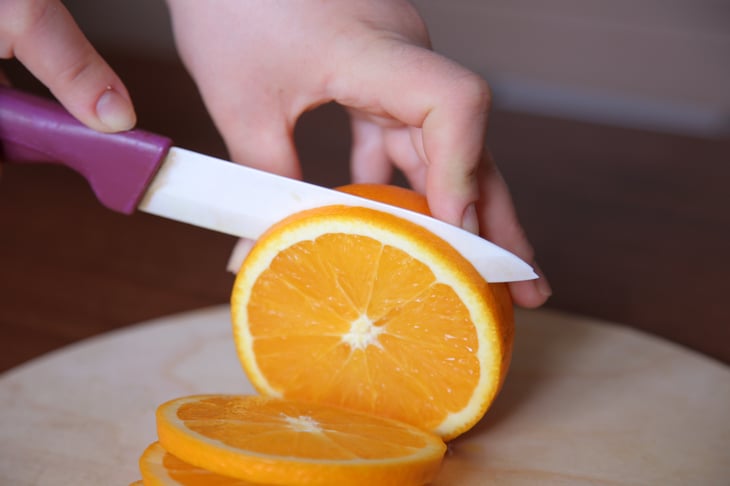
Planning for the week ahead is a good idea. But be careful of slicing and dicing too far in advance; it reduces the life of produce.
Of course, if you must get chopping, a little lemon juice helps produce last longer before it starts to brown.
11. Store leftovers in airtight glass containers
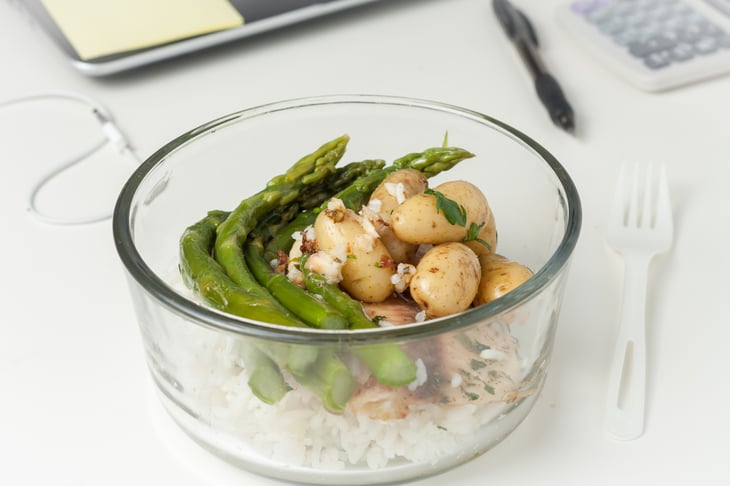
Airtight lids, predictably, keep air out. And with glass, you don’t have to worry about chemicals from plastic leaching into your food.
12. Stabilize the refrigerator’s temperature
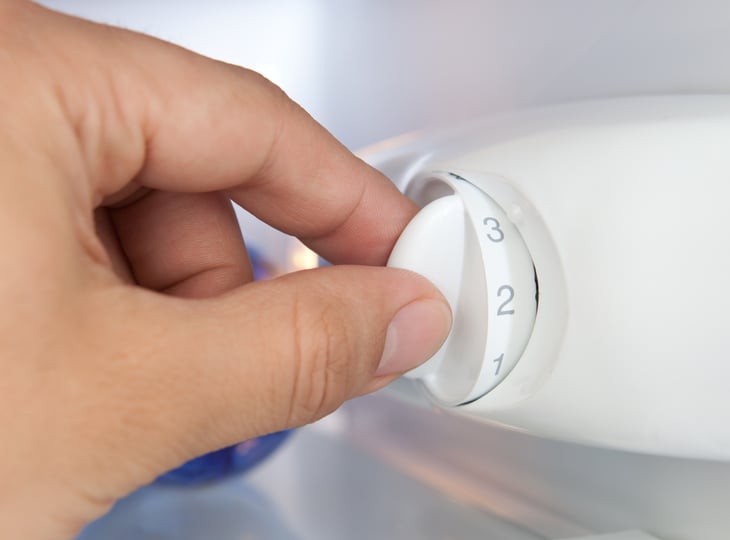
Aim for 40 degrees Fahrenheit to prevent the growth of toxic food bacteria. You don’t want the temperature so cold that your food freezes. On the other hand, a refrigerator that is too warm encourages spoilage, and that’s throwing money away.
13. Use paper bags for mushrooms
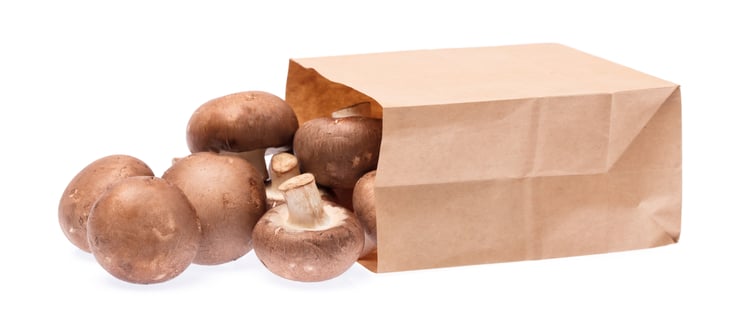
Plastic bags are a haven for moisture. They cause mushrooms to mildew. When a grocer offers paper bags next to the mushroom display, be sure to use one.
14. Place tomatoes upside down on the counter
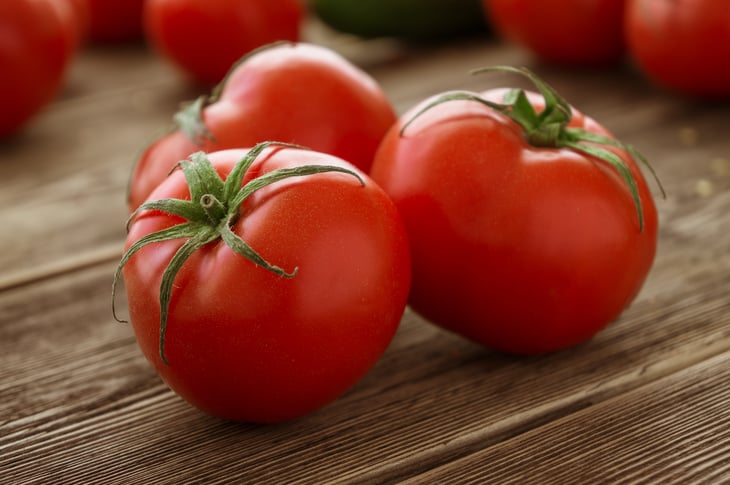
If the stem was removed before purchase, place the tomatoes upside down so air won’t seep into the small opening, which expedites ripening.
Tomatoes ripen quickly and should be eaten soon after they are purchased. For the freshest taste, keep unripe tomatoes outside the refrigerator. When they are fully ripe, though, put them in the refrigerator to extend their life, says Food52.
15. Keep the refrigerator tidy and organized
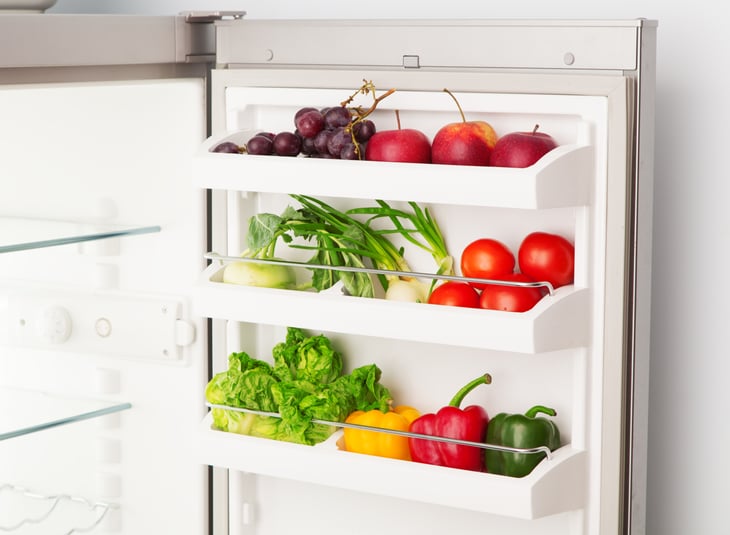
It is convenient to leave expired items in the corner of the fridge until you have time to purge. However, mold content in one area of the fridge can expand to other areas, contaminating open products.
Also, refrigerator clutter reduces the circulation of cool air and creates warm spots.
16. Store milk away from the refrigerator door
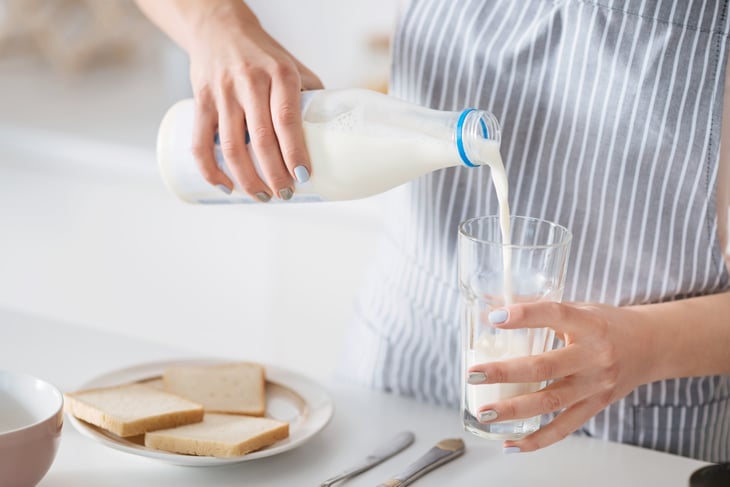
Think about when you open the fridge and look for something to eat. Items in the door are exposed the most to room temperature. Instead, keep your milk at the back. That’s the place to store things that could spoil quickly.
17. Segregate produce and meats

Allowing fresh produce and meats to mingle creates the risk of cross-contamination and causes rapid spoilage.
Meats should be wrapped and stored near the bottom of the refrigerator or freezer (in case they leak). To be extra safe, place meats in a bowl to catch any liquid.
18. Reseal prepackaged goods
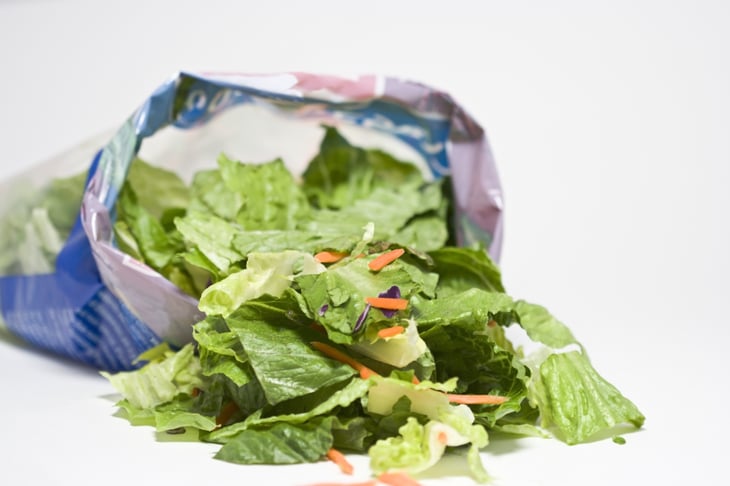
When you keep goods sealed, air will remain in the package and items won’t quickly harden or dry out.
19. Freeze bread
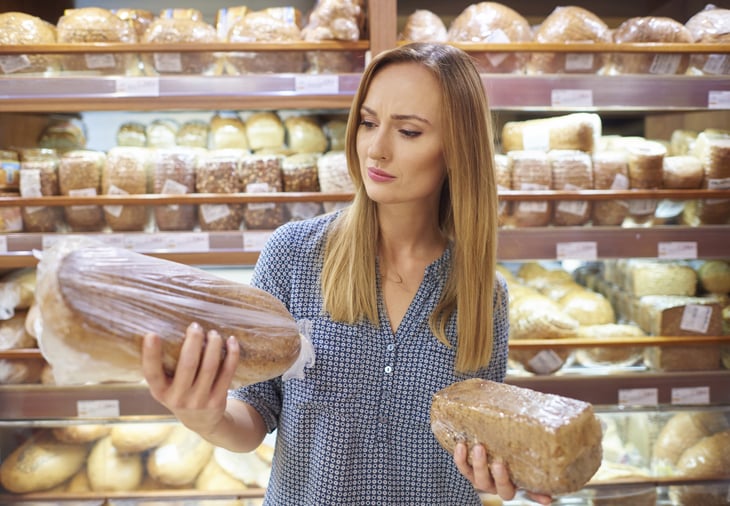
Freezing bread stops the onset of mold, which can spread like wildfire and quickly contaminate an entire loaf.
Also, try storing half of the loaf in the fridge and the other half in the freezer.






Add a Comment
Our Policy: We welcome relevant and respectful comments in order to foster healthy and informative discussions. All other comments may be removed. Comments with links are automatically held for moderation.